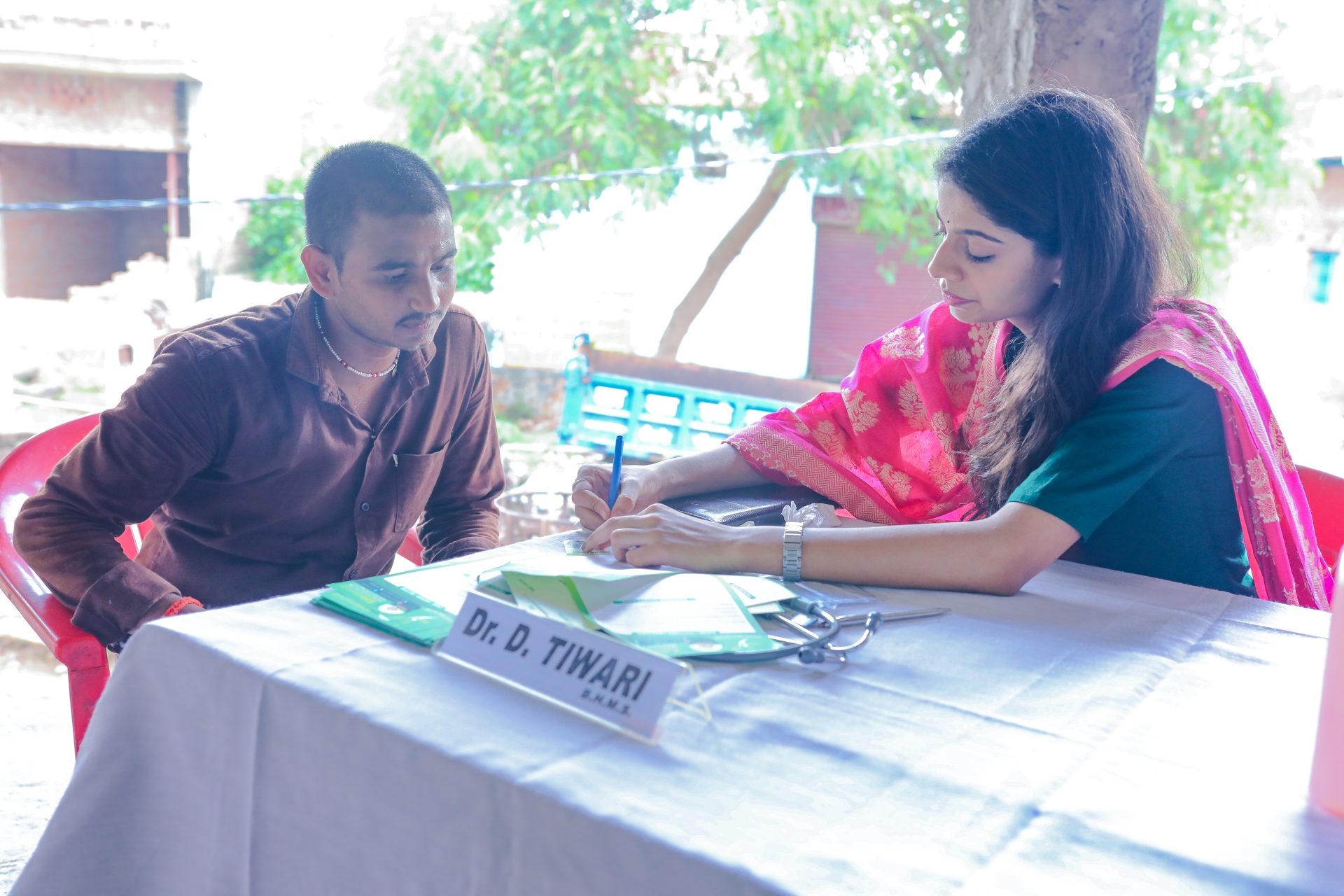By Saba Rajkotia
As we live through June, governments across the world are continuing to struggle under the strain of the devastating Covid-19 outbreak. In these times of crisis, some inspiring individuals have taken it upon themselves to provide help and assistance to their communities. Meet Diksha Tiwari, a final year student pursuing a Bachelor of Homeopathic Medicine and Surgery in AYUSH University, Chhattisgarh. Based on her aspirations to provide holistic medical care to the marginalised sections of society, Diksha started a Non-Profitable Organisation called “ARPAN – Empowering Lives” which organises free medical health check-ups and awareness campaigns. The Womb spoke to Diksha about her story, the work she does through Arpan, and how she has been helping those in need in the wake of the Coronavirus pandemic.
What inspired you to start and carry forward this work?
“The seed of empathy was sown in childhood itself”, says Diksha, “I used to teach my maid’s daughters as they were unable to pursue education due to financial and societal constraints”. Once she reached her teenage years, Diksha realised she was someone who could not stand to see the suffering of those less fortunate than her. Coming from a family who had previously led initiatives for those in need, Diksha decided to carry their legacy forward and received profound support from her family in her endeavour to do so.
While volunteering in various health camps, Diksha says she realised the importance of “follow-ups”, and how neglected that particular aspect of healthcare is. “Without a follow-up, you wouldn’t have knowledge of either the good results or the complications”, says Diksha. This was the moment Diksha saw the need for an organisation like ARPAN – Empowering Lives. Along with the support and active participation from team members Megha Shrivastava, Arshad, Anushree Rai, Tanya Ratnani and a huge volunteer network, Diksha began organising free health care camps in villages across Chhattisgarh, Orissa, Bihar and Uttar Pradesh. Due to limited resources, the Arpan team cannot always visit villages again for follow-ups, so they provide patients with regular free consultations over the phone and delivery of medicines free of cost via post.
What is the next big ARPAN Project?
“The entire ARPAN team came up with this beautiful idea of adopting a village after realising that climate change and lack of health care severely affected the people of villages. For example, due to unprecedented times of drought, women travel miles to fetch drinking water. The regular carriage of earthen pots weighing more than 50kgs on their heads and hips have cost them not only their osteoskeletal and vertebral architecture, but also their circadian rhythm”.
Diksha and her team started exploring solutions like solar tree establishment (a structure incorporating solar energy technology on a single pillar), introduction of smart panchayats, paddy processing units for production of sanitary napkins for women and skill development of children by nurturing their future interests. They approached each of these ideas with the main overarching aim of “sustainable development”. The idea is to ensure that the villagers are self-reliant and able to act on the various issues concerning them, with or without the help of authorities.
Diksha says the ARPAN team is currently in the surveillance stage of this project. “The village we currently have in mind is Surguja, in which tribal peoples make up over 80% of the population”. ARPAN is currently carrying out various awareness campaigns in order to familiarise the people with their idea and project, without their support neither of the goals can be reached. “Once we’re over the Coronavirus crisis, the process of village adoption is expected to gain its momentum”, says Diksha.
How is ARPAN working in the context of the Coronavirus crisis?
Diksha and her team have started a campaign in her locality, where every family gets together to prepare a meal for those in need. ARPAN volunteers distribute the food packets, around 50 packets a day, along with hand sanitisers and while maintaining the norms of social distancing and hygiene. “I personally believe that we can combat the current situation only by supporting the government and taking initiatives on an individual level”, says Diksha.
What do you hope to achieve with ARPAN in the future? What goals are you looking to fulfil?
“I aspire to make Chhattisgarh proud. I hope I am not being very ambitious when I say that I want that village to be recognised as a model of self-sustainability, across the country. Where every woman earns a livelihood and is independent, where kids are provided with every opportunity to fulfil their dreams, and most importantly where everyone realises the importance of mental health. ARPAN is also working to collaborate with other women-led NGOs for fulfilling its goal of women empowerment. Lastly, I hope to see society transition towards more holistic approaches to health”.
It is inspiring to know that even in times of crisis, people like Diksha are working hard for the benefit of others. You can follow ARPAN – Empowering Lives’ work on Instagram (@_arpan_empoweringlives_) and learn about the several campaigns they have led, including “Divided by Borders, United by Climate Change”.


